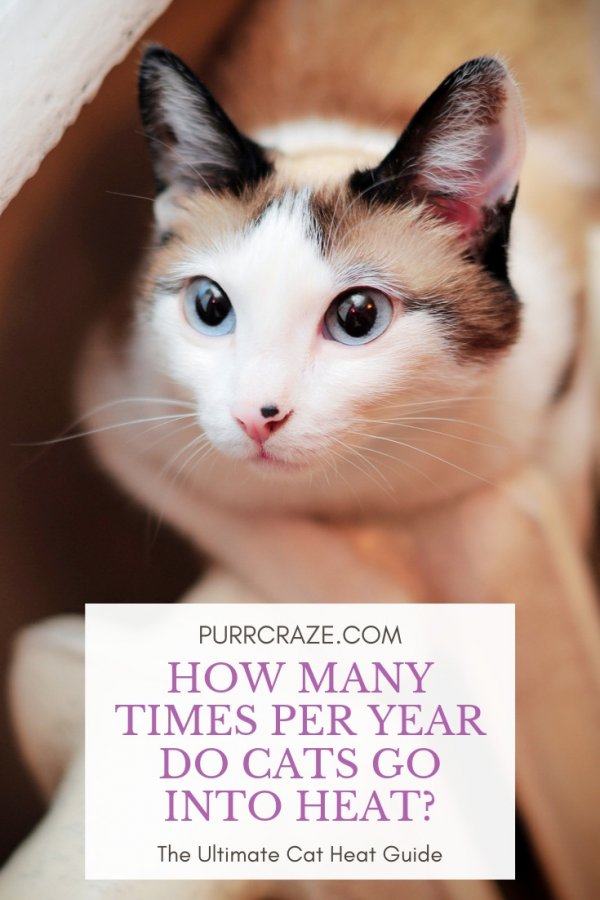If you’re wondering if it’s possible that your cat, which is sterilized, is showing signs of heat, has come to the right article, does your kitten sning all night, wring on the ground, call the males?Even if it’s neutered, they can actually be signs of heat.
Do you want to know how it is possible for the cat to enter heat even after being sterilized?The animal expert explains, read on!
First, we must make it clear that there are two situations
Therefore, it is important to remember what the symptoms of a cat are in heat:
If your cat is actually in heat, you should consult a veterinarian as a problem called remaining ovarian syndrome may occur.
Remaining ovary syndrome, also called ovarian rest syndrome, has been reported in humans and dogs and cats.This syndrome is more common in humans than in cats and dogs.Although may be less common in cats, there are several documented cases [1].
Basically, the remaining ovarian syndrome is characterized by the persistence of uterine activity, i.e. cios, in castrated women.And why does that happen? There may be different causes:
This syndrome can occur only a few weeks after castration or even years after castration.
Ovariohisterectomy is the most common procedure that is performed for sterilization of cats, this procedure is quite simple, but like any surgical procedure, there are some risks, being the remaining ovary syndrome one of them, in any case sterilization is always the best option.despite the risks and remember that this syndrome is rare.
As you know, cat sterilization has many advantages, including
If your neutered cat goes into heat, you should be careful with this syndrome, it is important to consult a veterinarian so that he or she can make a correct diagnosis.
Diagnosis of remaining ovarian syndrome is not always easy, the veterinarian is based on clinical signs, although not all cats present them.
Symptoms of remaining ovarian syndrome are usually the same as in the strata phase of the estrale in cats:
Vaginal discharges rarely occur in cats, unlike dogs, although an increase in urine frequency may be common.
Because symptoms of ovarian syndrome are not always present, the veterinarian uses other methods to arrive at diagnosis, the most common methods are vaginal cytology and abdominal ultrasound, although hormonal tests and laparoscopy are a little more expensive, they are also of great help for diagnosis.These methods rule out other possible differential diagnoses, such as pyometers, trauma, neoplasms, etc.
Drug treatment is generally not recommended. Therefore, your veterinarian is more likely to recommend exploratory surgery.Your veterinarian will likely advise you to have surgery during heat, as during this phase, the remaining tissue will be more visible.
Surgery allows the veterinarian to find this small piece of ovary that causes all these symptoms in your cat and during the extraction, the problem is solved!
Before concluding that the remaining ovarian syndrome in your cat is the fault of the veterinarian who performed the surgery, remember that as we have already indicated, there are several possible causes.
This can happen due to poorly performed surgery, hence the importance of choosing a good veterinarian, however, this is not the only cause and you cannot unfairly accuse the veterinarian without knowing what really triggered this syndrome, in some cases the cat has residues ovarian tissue outside the ovary and sometimes even in a remote part of the body; in such cases, it would be almost impossible for the veterinarian to notice and detect this tissue to remove during the normal castration procedure.? During the embryonic development of the cat, when it was still an embryo in the mother’s uterus, the cells that create the ovaries migrated to the other side of the body and now, years later, have developed and started to function.
In other words, there is often no way of knowing that there is still a small part of the ovary left in the cat’s body until it re-enters heat and the veterinarian has to undergo another surgery.
If your neutered cat has been in heat, it’s best to go to a vet so you can make the diagnosis quickly and start treatment.
This article is for informational purposes only, in Animal Expert.com.br we cannot prescribe veterinary treatments or make any type of diagnosis, we suggest taking your pet to the veterinarian in case of any type of condition or discomfort.
If you want to read articles similar to Castrated Cat enters Astrus, we recommend visiting our Other Health Problems section.

